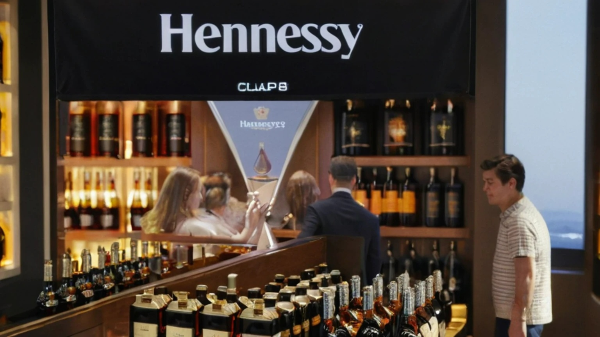Beijing has initiated the next phase of its investigation into EU brandy imports, marking another tit-for-tat move following the EU's imposition of provisional duties on Chinese electric vehicles (EVs).
On Thursday, the EU imposed tariffs ranging from 17.4% to 37.6% on Chinese EV imports, in addition to existing 10% duties, citing Beijing’s alleged unfair subsidization of car manufacturers.
In response, the Chinese Ministry of Commerce announced on Friday that it will conduct a hearing on July 18 to address allegations that EU brandy producers are selling their products in China below market rates.
The hearing, requested by brandy producers such as Martell, Societe Jas Hennessy & Co., and Remy Martin, will assess issues such as industrial damage, causes and effects, and public interest related to the anti-dumping investigation of EU brandy products, according to the ministry’s statement.
The Chinese probe will specifically examine EU-produced brandy in containers holding less than 200 liters imported between October 2022 and September 2023. It will also investigate alleged damage caused to the Chinese brandy industry from January 2019 to September 2023.
The Chinese Chamber of Commerce to the EU criticized the EU’s tariffs as politically motivated and protectionist, expressing hope for resolution through dialogue.
In contrast, EU member states are divided on the issue. Germany, where automakers made a significant portion of their sales in China last year, fears that the tariffs could have detrimental effects. Volkswagen reportedly described the move as harmful, while BMW’s leadership viewed the tariff dispute as leading to a deadlock.
According to recent research, the value of EU imports of Chinese EVs surged to $11.5 billion in 2023, up from $1.6 billion in 2020, constituting 37% of all EV imports to the bloc.
Last year, the European Commission launched an investigation into claims that subsidies allowed Chinese EVs to be sold at lower prices than those produced within the EU.
China has repeatedly called on the EU to revoke its EV tariffs, cautioning that it will not stand idly by and expressing readiness for negotiations. In January, Beijing initiated its first reciprocal anti-dumping investigation into EU brandy imports, followed by a second probe into pork shipments from the bloc in June.








